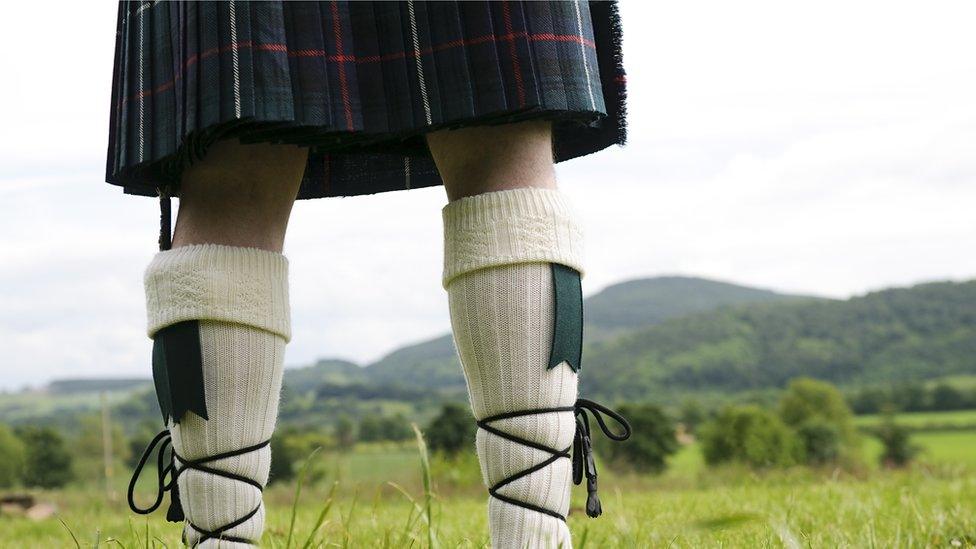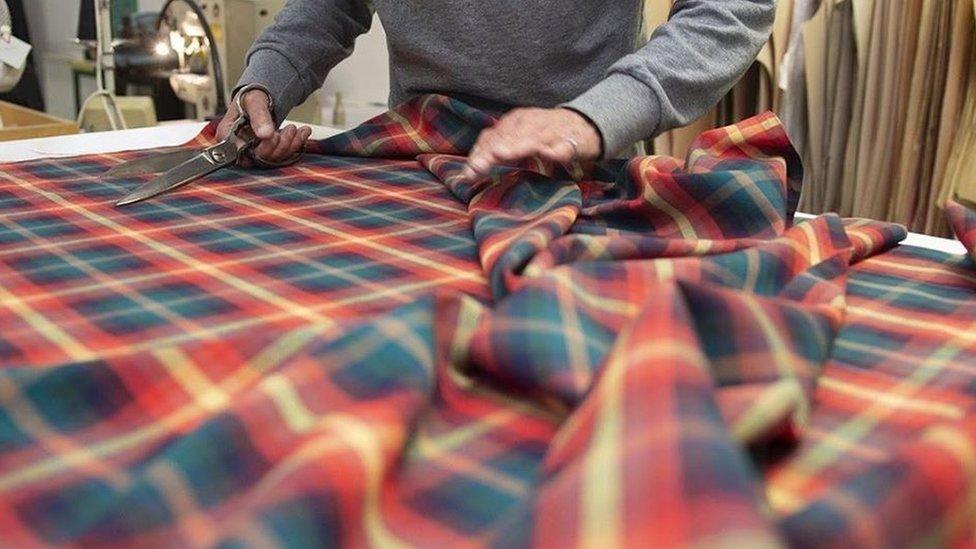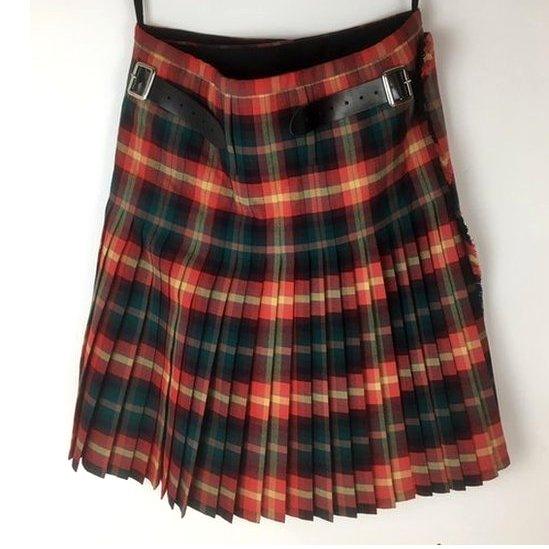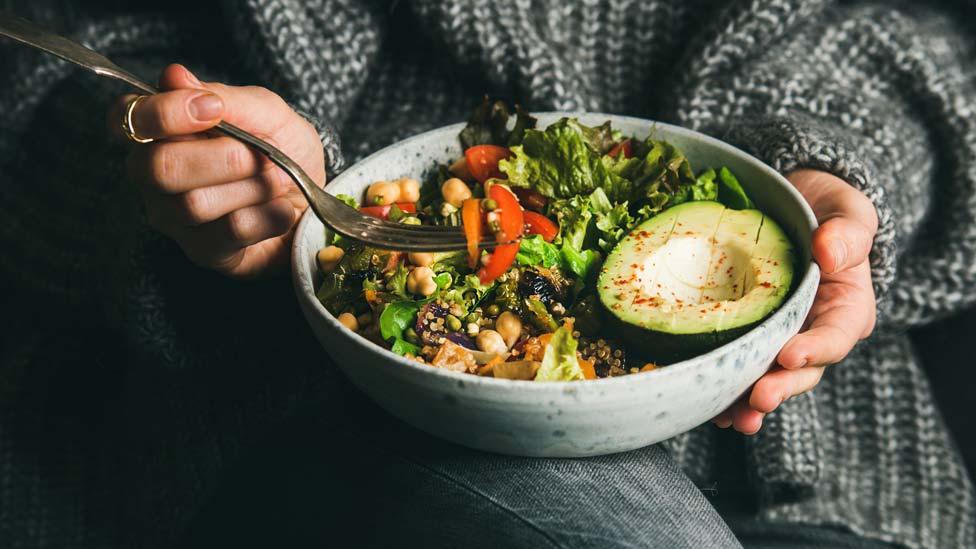Veganuary: The makers behind the vegan-friendly kilt
- Published

From wool to polyester - opinion is divided over the essential raw materials for a kilt
When Scott Wood realised the ethical minefield vegans face wearing Scotland's national dress, he decided to create an alternative.
A kiltmaker for more than 10 years, he switched to vegan-friendly kilts after adopting veganism three years ago.
The made-to-order garment avoids animal-based products such as wool and leather, making it suitable for vegans.
His kilts cater to the diet and beliefs that are becoming more and more popular in Scotland.
"I still wanted to wear my kilt but it collided with my new beliefs, so I made a vegan one for myself," Mr Wood told BBC Scotland's The Nine programme.
"Then I had a light bulb idea that there may be other people in my situation."
Based in Torry, Aberdeen, he uses cotton and polyester viscose instead of traditional materials to craft world-famous garment.
His range includes about 100 different tartans people can choose from for their vegan kilt, fastened with faux leather straps.
How do you make a vegan-friendly kilt?
Mr Wood claims these new vegan kilts are more durable than the traditional kilt which he says "tends to start to rot after several years". They are even machine washable.
The latest figures suggest there are about 600,000 vegans in the UK and this number continues to rise.
Although still a relatively new idea, Mr Wood is one of several kiltmakers developing garments free from animal by-products across Scotland as demand grows.
A long journey to sustainability

"The symmetry and the equal representation of colours in the vegan tartan indicate the importance of balance in life," according to kiltmaker Slanj
Slanj, a Glasgow-based kiltmakers, became the first company to register a vegan tartan with the Scottish Tartans Authority in August 2019.
It features warm, earthy tones and the kiltmakers pride themselves on marrying Scottish tradition with vegan living.
However, they have acknowledged how "tricky" it is to bring the traditional national dress into the 21st Century.
Ross Lyall, general manager at Slanj, explained: "We've had the usual naysayers who believe it's not really a kilt because it's not made from wool.
"But we've also come across a bit of backlash. The big problem is vegan-friendly kilts are not necessarily sustainable".

The kilt is vegan but made of unsustainable materials

Their kilts, like Mr Wood's, are made from a polyester viscose and although free from animal products, are "massively unsustainable for the environment".
This problem - along with the fact the kilt itself makes up for just one part of the traditional outfit - means there is a long way to go before Scottish national dress is accessible for everyone.
The dream at Slanj is to move towards using hemp for their kilts, a vegan and sustainable alternative - although this is a tricky and expensive process.
Mr Lyall said their first vegan-friendly kilt was "the first step in a long journey" to making kilts greener and has proved successful with customers already.
"The feedback has been more positive than negative. It really has meant a lot to people and it's massively high on the agenda for us going forward," he said.
What does it feel like to wear one?

Isaac (right) in a vegan kilt beside a traditional woollen one

Isaac Barnes, 20, works in Aberdeen's only vegan café and has been vegan himself for a year and a half.
He has one of Mr Wood's made-to-order vegan kilts and described it as comfortable, lightweight and warm.
However, he admitted he did not know how the vegan alternative fared compared with traditional woollen garments, having never worn one.
"I was stood outside in Aberdeen for hours and although my knees were purple, it still keeps the heat in and everywhere else was warm," he said.
Being Scottish, Mr Barnes said he had always wanted to own a kilt but thought it would not be possible after becoming vegan.
"I always just thought I wouldn't have a choice and in the past, I've always had to wear suits to weddings and things.
"Now I have my very own vegan kilt and I'm already planning to wear it to Hogmanay this year."

For Mr Wood, his aim is to branch out into creating vegan alternatives for the full Highland outfit, from the shoes to the jacket to sporrans.
"Veganism in general is kicking off in a big way," he said.
"And I think in maybe five, ten years time there will be a lot more people like me."
- Published10 January 2020

- Published2 January 2020

- Published28 April 2017
